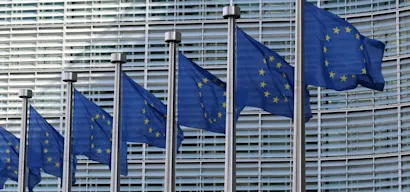In the Netherlands, we’ve mastered managing water—we’ve built dikes, canals, and flood defenses that make us world leaders in water management. When a big storm hits, we don’t wait for someone else to fix it; we solve the problem ourselves. That’s autonomy. It’s about being in control when it matters most.
Now, let’s shift this idea to the digital world. Digital autonomy is like managing those stormy seas, but instead of water, we’re dealing with technology and data. And here’s the challenge: right now, many governments—and by extension their industries—don’t seem to care much about controlling their own technology. They rely on foreign companies and platforms to handle critical systems like email, communication, AI, and even infrastructure. But what happens when those companies change their policies? Or worse, what if geopolitical tensions make them unreliable? Suddenly, we’re left waiting at someone else’s helpdesk instead of solving the problem ourselves.
Let me give you a simple example: emails. Many of our emails are managed by big tech companies like Microsoft. This means our data—our private conversations—is stored on servers we don’t control, often in other countries. Even if you try to protect your privacy by turning off data-sharing settings, it doesn’t always work. Updates to software like Windows or Outlook can reset those settings without your consent, undoing your choices. That’s not true autonomy—it’s dependence.
And dependence comes with risks. History shows us why this matters with a crude example. During World War II, the Nazis were super effective in deporting Dutch people because we had detailed population registries that they exploited. Resistance fighters destroyed these records to protect lives—a powerful lesson about the dangers of centralized data and lack of control. Yet today, many people forgot this, or so it seems. They use platforms like Chrome or WhatsApp without thinking about the privacy risks or who controls their data.
So how do we fix this? The answer lies in building our own systems—creating technology that prioritizes control, security, and privacy from the start. In Europe, there are companies already doing this. For example, my company Unless offers a European AI platform for regulatory-heavy sectors like finance and healthcare, with privacy protection built into every layer. We use advanced tools like privacy vaults and top-tier security measures to ensure that none of our customers’ private data reaches AI models at any time. And if geopolitical circumstances change? We’re prepared to switch out parts of our tech stack to maintain independence.
This is what digital autonomy looks like: taking ownership of our technology so we can adapt and protect ourselves no matter what storms come our way.






